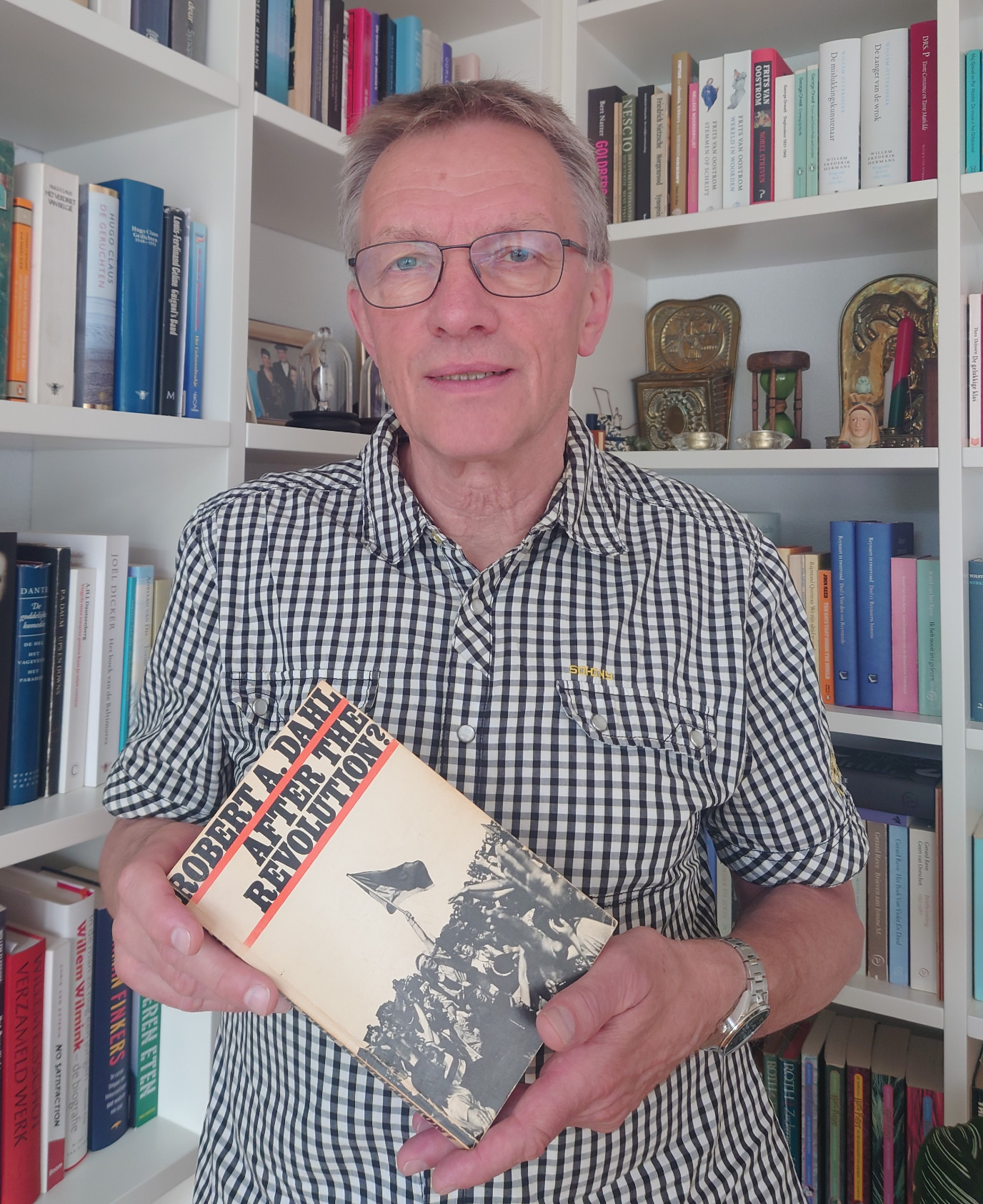Kees Aarts on controlling power: Robert A. Dahl - After the Revolution? Authority in a Good Society (1970)

In our new series I am what I read , UG staff reveal the literature that has influenced their professional lives. This time: Kees Aarts, Professor of Political Institutions and Behaviour.
Political science is the science of power. Why and how power should be restrained and shared is something only a few people know how to tell as well as Robert Dahl (1915-2014). Dahl is one of the most influential authors on democracy. Several of his books were among the prescribed literature in my studies at the University of Amsterdam.
So I already knew Dahl's clear way of reasoning and his direct writing style (an "I" addressing a "you") when I read After the Revolution? over 40 years ago. Yet this book touched me more directly than his other work. Why?
This book was not just about theory, it was also about the world around me. In this book, Dahl addresses idealists who, in the movement of the 1960s, demanded radical democratisation. The university was full of them even around 1980.
On the very first page, he warns them of disappointment: you want revolution but it will turn out to be "putting rococo decorations on existing structures". This is because the idealists are more interested in the fine-looking decorations than in the structure on which they are placed. The book is about this structure, this edifice, not the decorations. That edifice is democracy as we know it, and it rests on a few loose, sometimes conflicting principles of authority that we have to weigh against each other in practice.
There is thus no single, logically coherent basis for democracy. In particular, Dahl opposes the totalitarianism in democracy advocated by Jean-Jacques Rousseau, but he also identifies the shortcomings of other variants. "Perhaps the greatest error in thinking about democratic authority is to believe that ideas about democracy and authority are simple and must lead to simple prescriptions" (p.95).
That observation may not be appropriate to chalk on a banner or a building, but it provides a fruitful basis for a serious conversation about democracy and reform.
Kees Aarts is Professor of Political Institutions and Behaviour at the Faculty of Behavioural and Social Sciences. Until August 2024, he was also the faculty's dean.
Available at the UB: Robert A. Dahl, After the Revolution? Authority in a Good Society (1970)
| Last modified: | 10 September 2024 09.55 a.m. |
More news
-
24 March 2025
UG 28th in World's Most International Universities 2025 rankings
The University of Groningen has been ranked 28th in the World's Most International Universities 2025 by Times Higher Education. With this, the UG leaves behind institutions such as MIT and Harvard. The 28th place marks an increase of five places: in...
-
05 March 2025
Women in Science
The UG celebrates International Women’s Day with a special photo series: Women in Science.
-
16 December 2024
Jouke de Vries: ‘The University will have to be flexible’
2024 was a festive year for the University of Groningen. In this podcast, Jouke de Vries, the chair of the Executive Board, looks back.

